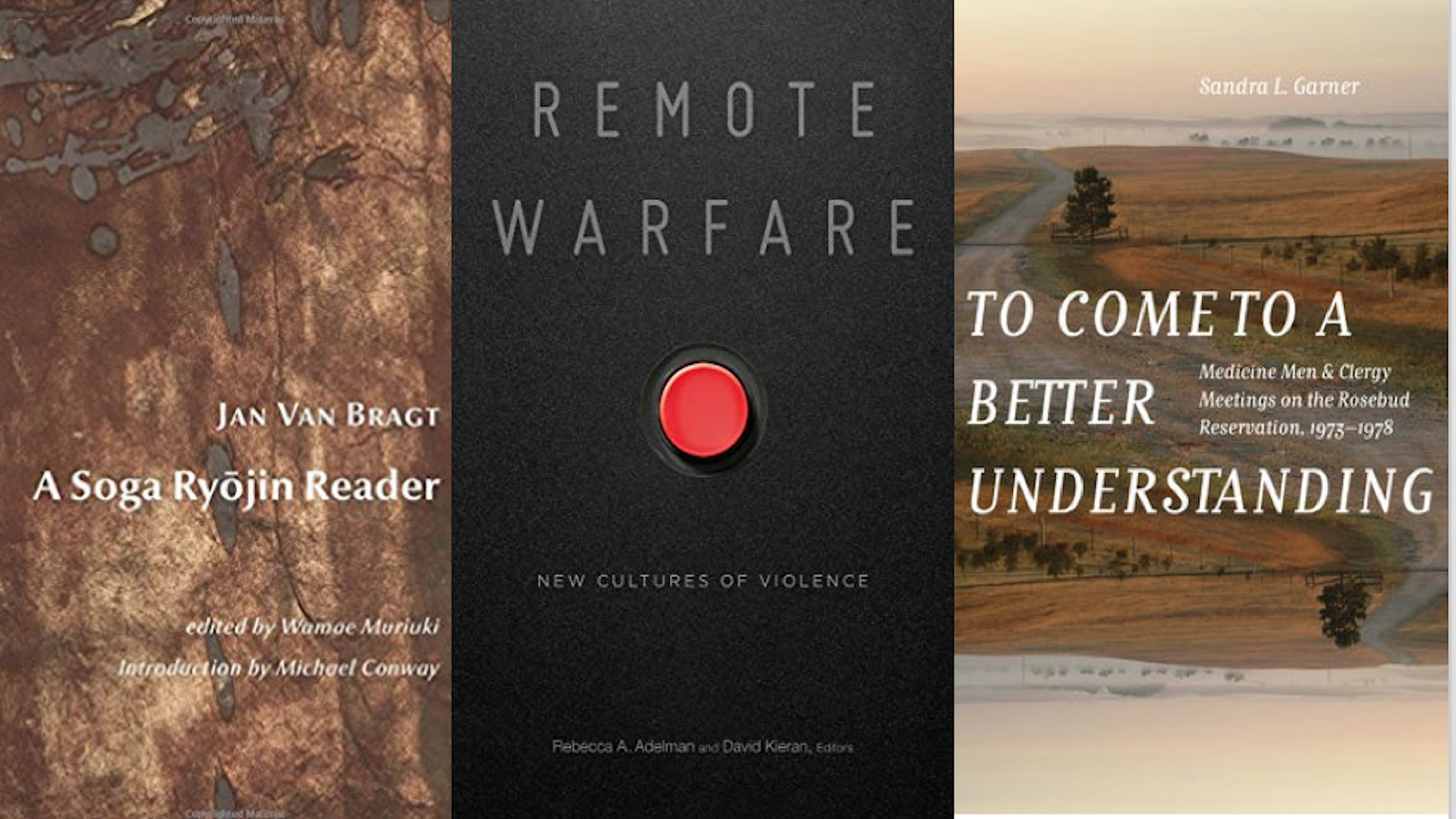Alumni Books
Published Books
Elizabeth Shively
Patriarchal Lineages in 21st-Century Christian Courtship: First Comes Marriage (Palgrave Macmillan, 2020)
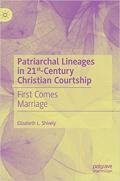
Drawing from a study of courtship media and ethnographic work at purity retreats and home-school conventions across the Midwest, this is the first inquiry into modern Christian courtship, an alternative to dating that asks young people to avoid both romance and sex until they are ready to be married. Bridging sociological and historical studies of American Christianity with youth and girlhood studies literatures, Elizabeth Shively finds that the courtship system is designed to shore up the patriarchal nuclear family structure at the center of conservative Christianity and ensure predictability in the face of emerging adulthood: single young women work to embody ideals of “luminous femininity” and model themselves after archetypes such as the “Proverbs 31 woman,” the “stay-at-home-daughter,” and the “mission-minded girl,” and courting couples strive to “guard their hearts” against premature emotional intimacy. Nonetheless, participants report that courtship, like other relationships, inevitably carries an element of risk, and it ultimately fails to offer a substantial challenge to the sexist realities of youth dating culture.
Ilana Maymind
Exile and Otherness. The Ethics of Shinran and Maimonides (Rowman and Littlefield, 2020)

In Exile and Otherness: The Ethics of Shinran and Maimonides, Ilana Maymind argues that Shinran (1173–1263), the founder of True Pure Land Buddhism (Jodo Shinshu), and Maimonides (1138–1204), a Jewish philosopher, Torah scholar, and physician, were both deeply affected by their conditions of exile as shown in the construction of their ethics. By juxtaposing the exilic experiences of two contemporaries who are geographically and culturally separated and yet share some of the same concerns, this book expands the boundaries of Shin Buddhist studies and Jewish studies. It demonstrates that the integration into a new environment for Shinran and the creative mixture of cultures for Maimonides allowed them to view certain issues from the position of empathic outsiders. Maymind demonstrates that the biographical experiences of these two thinkers who exhibit sensitivity to the neglected and suffering others, resonate with conditions of exile and diasporic living in pluralistic societies that define the lives of many individuals, communities, and societies in the twenty-first century.
Tahseen Kazi
Ritu Vij, Tahseen Kazi, and Elisa Wynne-Hughes (eds.), Precarity and International Relations (2020)

This book addresses the implications of current thinking on precarity, precariousness and the precariat for the study of International Relations and International Political Economy. Drawing on a broad range of critical theoretical resources including literatures on aesthetics and psychoanalysis as well as feminist, Foucauldian, Marxian and postcolonial social theory, it explores the implications of precarity thought for three concepts: Sovereignty, Solidarities and Work in International Relations. Does precarity re-inscribe or undermine the logic and practices of sovereignty? As a common condition and point of mobilization, does precarity represent a new labor activism or does it find ethical grounds for solidarities that destabilize identities? How is precarity located, practiced and occluded in work relations? Running counter to the contemporary impulse to grasp precarity and processes of its proliferation in homogenized terms as either being ensconced in national imaginaries, or as ushering in a condition of global precarity and a global precariat class, the book also underscores the entanglements of the global, national and local in the discursive and material production of precarity and precariousness in the present conjuncture.
Rebecca Adelman
Rebecca Adelman and David Kieran (eds.), Remote Warfare: New Cultures of Violence (University of Minnesota Press, 2020)

Drone warfare is now a routine, if not predominant, aspect of military engagement. Although this method of delivering violence at a distance has been a part of military arsenals for two decades, scholarly debate on remote warfare writ large has remained stuck in tired debates about practicality, efficacy, and ethics. Remote Warfare broadens the conversation, interrogating the cultural and political dimensions of distant warfare and examining how various stakeholders have responded to the reality of state-sponsored remote violence. The essays here represent a panoply of viewpoints, revealing overlooked histories of remoteness, novel methodologies, and new intellectual challenges. From the story arc of Homeland to redefining the idea of a “warrior,” these thirteen pieces consider the new nature of surveillance, similarities between killing with drones and gaming, literature written by veterans, and much more. Timely and provocative, Remote Warfare makes significant and lasting contributions to our understanding of drones and the cultural forces that shape and sustain them.
Saeed Honarmand
Literary Genres as Classifying Discourses: A Genre Analysis of Persian Literature (Tehran: Inteshārāt-e Morvārid 2020)
Oded Nir
Rethinking Israel and Palestine: Marxist Perspectives (Routledge, 2019)
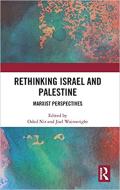
The Middle East seems to be in perpetual crisis. One might expect a plethora of Marxist analyses of Israel and Palestine. Yet in the literature on Israel and Palestine there are hardly any studies of class, relations of production, or the relationship between the political and economic balance of forces over time. This edited volume brings a diverse array of Marxist-influenced interpretations of the present conjuncture in Israel and Palestine. The collection includes works by luminaries of social theory, such as Noam Chomsky and Fred Jameson, as well as leading scholars of Palestine (Raja Khalidi, Sherene Seikaly, and Orayb Aref Najjar) and Israel (Jonathan Nitzan, Nitzan Lebovic and Amir Locker-Biletzki). It comprises the first-ever collection of Marxist-influenced writings on Palestine and Israel, and the relationship between them.
Rebecca Adelman
Figuring Violence: Affective Investments in Perpetual War (Fordham University Press, 2019)
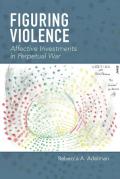
In the United States, the early years of the war on terror were marked by the primacy of affects like fear and insecurity. These aligned neatly with the state’s drive toward intensive securitization and an aggressive foreign policy. But for the broader citizenry, such affects were tolerable at best and unbearable at worst; they were not sustainable. Figuring Violence catalogs the affects that define the latter stages of this war and the imaginative work that underpins them. These affects—apprehension, affection, admiration, gratitude, pity, and righteous anger—are far more subtle and durable than their predecessors, rendering them deeply compatible with the ambitions of a state embroiling itself in a perpetual and unwinnable war. Surveying the cultural landscape of this sprawling conflict, Figuring Violence reveals the varied mechanisms by which these affects have been militarized. Rebecca Adelman tracks their convergences around six types of beings: civilian children, military children, military spouses, veterans with PTSD and TBI, Guantánamo detainees, and military dogs. All of these groups have become preferred objects of sentiment in wartime public culture, but they also have in common their status as political subjects who are partially or fully unknowable. They become visible to outsiders through a range of mediated and imaginative practices that are ostensibly motivated by concern or compassion. However, these practices actually function to reduce these beings to abstracted figures, silencing their political subjectivities and obscuring their suffering. As a result, they are erased and rendered hypervisible at once. Figuring Violence demonstrates that this dynamic ultimately propagates the very militarism that begets their victimization.
Saeed Honarmand
Aristotle’s Theory of Genre (Botighai Arastoo: kankashi dar teori-e botigha) (Tehran: Nashre Cheshmeh 2019)
Oded Nir
Signatures of Struggle: The Figuration of Collectivity in Israeli Fiction (SUNY Press, 2018)
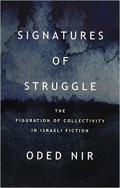
Signatures of Struggle offers a unique perspective on Israeli literature, bringing Marxist cultural critique to bear on a field from which it has hitherto been absent. Oded Nir moves beyond the dominant interpretive horizon of Israeli literary criticism: the relation of literature to national ideology. Rather than reproducing the usual narrative in which fiction resists the nation’s goals, Nir demonstrates how, in each historical moment, literary engagement with national ideology is a means to think through social tensions or contradictions internal to Israeli society—to solve in imagination problems that threaten the social order. Focusing on moments of transformation, Nir argues that the 1950s crisis of realism was the result of the failure, rather than the success, of the collective transformative project of the haluzim, the settler vanguard of Zionism. In the 1980s, the postmodern turn expressed a crisis of social imagination, whose origin was the incorporation of Palestinians into the Israeli economy after the 1967 war. Finally, he shows that the ways in which history is imaginatively reworked in contemporary Israeli fiction can only be understood through the context of 1950s and 1980s literature. Authors analyzed include Yigal Mossinsohn, Nathan Shaham, Hanoch Bartov, Yehudit Hendel, Orly Castel-Bloom, Yehudit Katzir, David Grossman, Yehoshua Kenaz, and Batya Gur.
Wamae Muriuki
Wamae Muriuki (ed.), Jan van Bragt, A Soga Ryōjin Reader (Brussels, Belgium and Nagoya, Japan: Chisokudō, 2017)

The present collection brings together selections from the writings of Soga Ryōjin, arguably the most innovative and influential Pure Land Buddhist thinker of twentieth-century Japan. In an attempt to counter the religious skepticism of his age, Soga rejected the idea of a post-mortem soteriology and fought fiercely for the true significance of Shinran's thought. This volume shows the development of Soga's thinking and the variety of contexts in which he wrote.
Damon Berry
Blood and Faith: Christianity in American White Nationalism (Syracuse University Press, 2017)
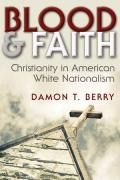
Beginning with Ronald Reagan’s 1980 presidential campaign, the term “religious right” entered the popular lexicon, coming to signify a politically and socially conservative form of Christianity that informs American conservatism to this day. Less well known are other ideologies that have influenced the far right since well before 1980, including Odinism, Creativity, and racialized atheism. The rising popularity of these extreme groups and their philosophical grounding in racial politics and religious bigotry has caused a shift away from—and often hostility toward—even racist forms of Christianity among American white nationalists. In Blood and Faith, Berry deftly explores the causes of this shift, rooted largely in response to racialized anxieties that are by no means exclusive to extremists in America. Focusing on the challenges these tensions pose for contemporary white nationalists seeking access to mainstream conservative politics, Berry also considers the recent rise of the so-called “alt-right” and the unifying issues of anti-multiculturalism and anti-immigration around which moderate and fringe groups have rallied. Blood and Faith is a provocative investigation of the complex, evolving role of white nationalism and an urgent reminder of the outsized influence of religion in American political life.
Sande Garner
To Come to a Better Understanding: Medicine Men and Clergy Meetings on the Rosebud Reservation, 1973-1978 (University of Nebraska Press, 2016)
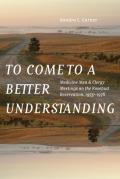
To Come to a Better Understanding analyzes the cultural encounters of the medicine men and clergy meetings held on Rosebud Reservation in St. Francis, South Dakota, from 1973 through 1978. Organized by Father Stolzman, a Catholic priest studying Lakota religious practice, the meetings fit the goal of the recently formed Medicine Men’s Association to share its members’ knowledge about Lakota thought and ritual. Both groups stated that the purpose of the historic theological discussions was “to come to a better understanding.” Though the groups ended their formal discussions after eighty-four meetings, Sandra L. Garner shows how this cultural exchange reflects a rich Native intellectual tradition and articulates the multiple meanings of “understanding” that necessarily characterize intercultural encounters. Garner examines the exchanges of these two very different cultures, which share a history of inequitable power relationships, to explore questions of cultural ownership and activism. These meetings were another form of activism, a “quiet side” without the militancy of the American Indian Movement. Based on ethnographic fieldwork and archival analysis, this volume focuses on the medicine men participants—who served as translators, interpreters, and cultural mediators—to explore how modern political, social, and religious issues were negotiated from an indigenous perspective that valued experience as critical to understanding.
Andrew Culp
Dark Deleuze (University of Minnesota Press, 2016)
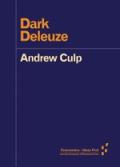
French philosopher Gilles Deleuze is known as a thinker of creation, joyous affirmation, and rhizomatic assemblages. In this short book, Andrew Culp polemically argues that this once-radical canon of joy has lost its resistance to the present. Concepts created to defeat capitalism have been recycled into business mantras that joyously affirm “Power is vertical; potential is horizontal!” Culp recovers the Deleuze’s forgotten negativity. He unsettles the prevailing interpretation through an underground network of references to conspiracy, cruelty, the terror of the outside, and the shame of being human. Ultimately, he rekindles opposition to what is intolerable about this world.
Saeed Honarmand
Persian Textbook for Advanced (Āmuzesh-e zabān-e Fārsi III) (Toronto: Javan Books 2019); Persian Textbook for Intermediate (Āmuzesh-e zabān-e Fārsi II) (Toronto: Javan Books 2017); Persian Textbook for Elementary (Āmuzesh-e zabān-e Fārsi I) (Toronto: Javan Books 2016)
Michael McVicar
Christian Reconstruction: R. J. Rushdoony and American Religious Conservatism (University of North Carolina Press, 2015)

The first critical history of Christian Reconstruction and its founder and champion, theologian and activist Rousas John Rushdoony (1916–2001). Drawing on exclusive access to Rushdoony's personal papers and extensive correspondence, Michael J. McVicar demonstrates the considerable role Reconstructionism played in the development of the radical Christian Right and an American theocratic agenda. As a religious movement, Reconstructionism aims at nothing less than "reconstructing" individuals through a form of Christian governance that, if implemented in the lives of U.S. citizens, would fundamentally alter the shape of American society. McVicar examines Rushdoony's career and traces Reconstructionism as it grew from a grassroots, populist movement in the 1960s to its height of popularity in the 1970s and 1980s. He reveals the movement's galvanizing role in the development of political conspiracy theories and survivalism, libertarianism and antistatism, and educational reform and homeschooling. The book demonstrates how these issues have retained and in many cases gained potency for conservative Christians to the present day, despite the decline of the movement itself beginning in the 1990s. McVicar contends that Christian Reconstruction has contributed to how certain forms of religiosity have become central, and now familiar, aspects of an often controversial conservative revolution in America.
Saeed Honarmand
Literary Theory from Foucault’s Perspective (Daramadi bar Foucault) (Toronto: Javan Books 2015)
Alana Kumbier
Ephemeral Material: Queering the Archive (Sacramento: Litwin Books, 2014)

Ephemeral Material: Queering the Archive articulates a queer approach to archival studies and archival practice, and establishes the relevance of this approach beyond collections with LGBTQ content. Kumbier argues that queering the archive (thinking through queer interests, experiences, explanatory frameworks, and cultural practices) allows us to think critically about established archival principles and practices. This project describes — and supports — the work of archivists, community documentarians, activists, and scholars seeking to preserve materials documenting queer lives and experiences, and imagines how we might respond to the particular demands of archiving queer lives. Further, this project intervenes in the repetition of practices that may exclude LGBTQ constituencies, render our experiences less-visible/less-legible, or perpetuate oppressive power relations between archivists and users or documented subjects. The project aims to make work by scholars in history, performance studies, queer studies, and other areas of the humanities who are encountering the limits of archives — and are developing strategies for working with them — legible and relevant to archivists and librarians. The book supports its conceptual work with concrete examples of collecting and documentation projects, a research ethnography, and analyses of popular media that represent — and critique — archival spaces and practices.
Rebecca Adelman
Beyond the Checkpoint: Visual Practices in America’s Global War on Terror (University of Massachusetts Press, 2014)
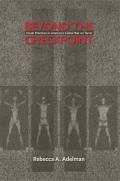
Since the 9/11 attacks on U.S. soil, American citizenship has been redefined by the visual images associated with the Global War on Terror (GWOT). Rebecca A. Adelman contends that, in viewing images such as security footage of the 9/11 hijackers, film portrayals of the attacks and subsequent wars, memorials commemorating the attacks, and even graphics associated with increased security in airports, American citizens have been recast as militarized spectators, brought together through the production, circulation, and consumption of these visual artifacts. Beyond the Checkpoint reveals that the visual is essential to the prosecution of the GWOT domestically and abroad, and that it functions as a crucial mechanism in the ongoing formation of the U.S. state itself and an essential component of contemporary American citizenship. Tracing the connections between citizenship and spectatorship, and moving beyond the close reading of visual representations, this book focuses on the institutions and actors that create, monitor, and regulate the visual landscape of the GWOT. Adelman looks around and through common images to follow the complex patterns of practice by which institutions and audiences engage them in various contexts. In the process, she proposes a new methodology for studying visual cultures of conflict, and related phenomena like violence, terror, and suffering that are notoriously difficult to represent. Attending to previously unanalyzed dimensions of this conflict, this book illustrates the complexity of GWOT visual culture and the variegated experiences of citizenship that result as Americans navigate this terrain.
Saeed Honarmand
Gurogli: the Tajiki Epic, translated and edited (Toronto: Javan Books 2010)
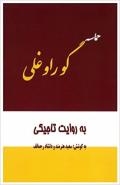
Saeed Honarmand
To in rā fasāneh madān: Shānāmeh dar parto-e entezār-e nāji (“Do Not See It As A Myth: Reading the Shāhnāmeh in the Context of Messianic Expectation”) (Toronto: Javan Books & Pegāh Publisher, 2008)
Saeed Honarmand
Chand jostār darbāreh-i adabiyāt-e dāstāni (“Essays on Literary Narratives in Persian Literature”) (Toronto: Javan Books, 2008)
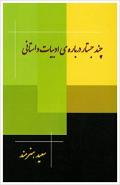
Saeed Honarmand
Chāhār Divān: hazliyāt-e chāhār shā’er (“Four Volumes: the Erotic Poetry of Four Medieval Iranian Poets”) (under penname: S. H. Azar) (Toronto: Javan Books & Pegāh Publisher, 2008)
Saeed Honarmand
An Inquiry on Persian Novels (“Gozareshi bar dastan o dastan-nevisi”) (Toronto: Javan Books, 2007)

Saeed Honarmand
Hameh tā dar-e āz rafteh farāz: Jostāri chand darbāreh Shāhnāmeh (“The Heights of Greed: Essays on the Shāhnāmeh: The Iranian National Epic”) (Toronto: Javan Books & Pegāh Publisher, Winter 2007)
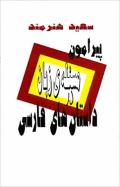
Saeed Honarmand
Cheraa Bouf-e Kour (“Why the Blind Owl: An Essay on Sādeq Hedāyat”) (Toronto: Pegāh Publisher, 2001)
Saeed Honarmand
Piramon-e Mas’leh-I Zaban dar Dastanha-I Farsi (“Regarding the Problem of Language in Persian Fiction”) (Toronto: Pegah Publisher, 1998)
Saeed Honarmand
Howz-e Sangi, A Novel (Toronto: Javan Books, 1997)
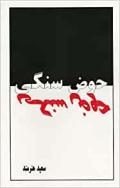
Saeed Honarmand
Rangin Kaman-e Taghazul (“The Rainbow of the Lyre: on Poetry”) (Tehran: Nay Publications, 1992)
Books Under Contract
Damon Berry
The New Apostolic Reformation, Trump, and Evangelical Politics (under contract with Bloomsbury)
Damon Berry
Christianity & The Alt-Right: Exploring a Relationship (under contract with Routledge)
Michael McVicar
God’s Watchers: Domestic Intelligence Gathering and Religious Activism from the Civil War to the War on Terror (under contract with University of North Carolina Press)
Brian Murphy
We the Dead: Preserving Data at the End of the World (under contract with University of North Carolina Press)
Rebecca Adelman and Wendy Kozol, The War In-Between (under contract with Fordham University Press)
Andrew Culp
Imperceptibility (under contract with University of Minnesota Press)
Dan DiPiero
Contingent Encounters: Improvisation in Music and Everyday Life (under contract with University of Michigan Press)

